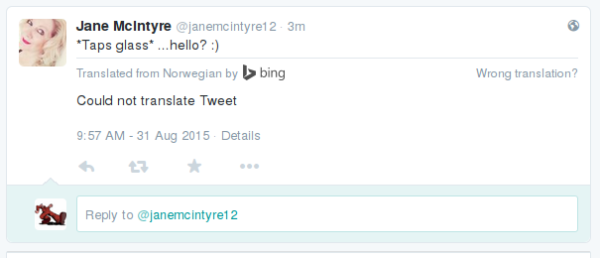Can’t tell Norwegian from English? It must be Bing Translator
According to Wikipedia, Bing Translator “is a user facing translation portal provided by Microsoft as part of its Bing services to translate texts or entire web pages into different languages.”
Or it would be if only it could actually recognise languages accurately.
Twitter uses Bing Translator as an interface ostensibly to help users with languages they do not know.
However, Bing Translator still has some way to go before it recognises languages accurately, as shown by the following screenshot.

Whilst it is understandable that online machine translation tools can occasionally get confused between closely related members of the same language family (Google Translate has been known to confuse Norwegian and Danish. Ed.), this is the first time I can recall such a back end helper being a real tool and getting muddled over languages as distinct from one another as English and Norwegian.
Perhaps any passing Microsoft developers would care to explain this anomaly in the comments below.

 The
The 




